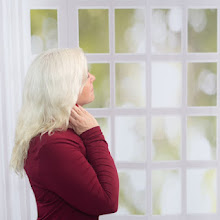To view the full series, check out our archive! As a reminder to new readers, you can start anywhere, even here as articles do not need to be read in any particular order.
Insomnia. It is such an important topic that I lay in bed last night thinking about it! It is a very prevalent problem with 10-15% of the population in the United States experiencing this condition. In addition, 5.5 million doctor office visits for this condition were reported in 2020. For something so basic and important to maintain life and good health.
Insomnia does not refer to only difficulty falling asleep. It is anything that stops you from getting restorative sleep. You may also wake up throughout the night or wake up too early (meaning the body did not get a chance to completely restore itself). Insomnia refers to people who have the opportunity to sleep but just cannot for whatever reason. Therefore, this doesn't include people who work at night or who are up at night with little ones. That means there are an awful lot of people to talk to at 2:00am!
mental health disorders, physical illnesses and pain, medications, along with specific sleep disorders.
I believe there are other reasons. Our diets often include too much caffeine, processed food and not enough water and healthy fruits and vegetables. We don't always get enough time in the sunlight nor enough exercise. Indoor lighting, particularly in businesses, is bright and harsh on our eyes. And our bodies don't know the difference between day and night. We can read, watch television, use the computer, do chores and even work at night. For many of us, our nights are not much different than our days.
If you suffer from depression, your risk on insomnia increases and vice versa. Approximately 40% of insomniacs have depression and 80% of depression sufferers have insomnia. The connection between sleep issues and depression is bidirectional. In other words, poor sleep can contribute to depression and depression can lead to sleep problems. This is a chicken and egg scenario. Which came first, the chicken or the egg? The depression or the insomnia? It is unclear. Sleep issues can affect the neurotransmitter serotonin thus leading to depression. Depression can lead to sleep issues because it disrupts the body's sleep/wake cycle.
You may have heard the term circadian rhythm.. Circadian rhythms are 24-hour cycles that are part of the body's internal clock running essential processes in the background. Different body systems follow circadian rhythms that synchronized by a master clock in the brain. One of these is the sleep-wake cycle. The issue is that these rhythms are affected by our environment. If it is light out, hormones that keep us awake are released. Our body is on alert, getting ready to work and to be on the look out for any predators. If it is dark out, the body produces the hormone melatonin to help us get ready to sleep.
Our body needs restorative sleep after being on high alert during the day. Just like a lamp that is kept on, we will burn out.
Studies show that chronic sleep issues gradually change how the neuroendocrine system works in the body. These changes are similar to what is seen in stress related conditions such as depression, cardiovascular disease, and other mood disorders. Disrupted sleep will affect our autoimmune function and how we respond to stress.
To recap, insomnia can contribute to developing depression as well as other disorders. It can also lead to recurrent of depressive episodes for those who are have depression and is a risk factor for poor outcomes. This makes sense to me. How can you get better if your body never gets to rest properly?
The good news is that there is lots of advice available. Sleepfoundation.org.
Certain medication regimens can help treat both the depression and the sleep issues at the same time. Antidepressants may be combined with hypnotic agents. Speak with your doctor regarding medication. I will discuss medication in a future article. Medication can be an important part of a treatment. That being said, medication can have multiple side effects and can vary in their effectiveness. Note: there is a lab test that your doctor can use to determine how your body processes (metabolizes) a drug. It can't tell your doctor exactly what to prescribe for you. But it does let her/him know which ones are more likely to help you and which ones are more likely to be ineffective. It gives your physician more information
before prescribing something for you. It is called cytochrome P450 (CYP450). It is not always covered by insurance. However, I am going to focus on other treatment options for depression and insomnia aside from medicine.
1. Sunlight. This is one of my favorite treatment options! I put on a natural, chemical free sunblock to
avoid a sunburn on my Irish pale skin. Lol. My heaven on Earth is the dog park. We pile the 3 dogs into our SUV and head down to the local dog park or the amazing one next to the beach. No matter if I am feeling stressed, pain (or any other symptoms), I feel different after my time in the sun. Everything just seems better. If you don't live somewhere that has a lot of sunlight, or if the weather is not conducive to outdoor activity, there are other options. There are sun lamps and light therapy lamps that mimic sunlight and apparently can help with Vitamin D. People with light sensitivity, bipolar disorder, diabetes, or eye conditions may not be candidates for light therapy lamps. It is recommended you speak with your practitioner before purchasing one.
avoid a sunburn on my Irish pale skin. Lol. My heaven on Earth is the dog park. We pile the 3 dogs into our SUV and head down to the local dog park or the amazing one next to the beach. No matter if I am feeling stressed, pain (or any other symptoms), I feel different after my time in the sun. Everything just seems better. If you don't live somewhere that has a lot of sunlight, or if the weather is not conducive to outdoor activity, there are other options. There are sun lamps and light therapy lamps that mimic sunlight and apparently can help with Vitamin D. People with light sensitivity, bipolar disorder, diabetes, or eye conditions may not be candidates for light therapy lamps. It is recommended you speak with your practitioner before purchasing one.
2. Water. Swimming in a pool, relaxing in a jacuzzi, or taking a bath can help to relax your muscles. Some people use lavender oil or Epsom salts to further relax in a bath. A relaxed body leads to a relaxed mood and a better chance of combating insomnia. The calmer you feel, the more likely you'll sleep. Water is an amazing substance.
3. Nature. There is a theory (the biophilia theory) that since we evolved in nature, our senses and body
rhythms are best suited for it. In other words, we belong in nature. That is why we are so attracted to it; whether it be trees or the ocean. There are times we almost crave it. How many times have you heard someone say that they would love to take a break and rest on the sand near a pale blue sea on a tropical island? You never hear anyone say they would love to pull up a chair and watch the traffic go by on a busy street. Lol. According to biologist E.O. Wilson, there is an "innate emotional affiliation with other living organisms" that makes us calm and comfortable in nature. The sounds, smells, sights are our evolutionary "happy place" where we can rest and rejuvenate. We are deeply tied to a world from where we have strayed. Despite the comforts of the modern world, there is a price to pay for urban living.
rhythms are best suited for it. In other words, we belong in nature. That is why we are so attracted to it; whether it be trees or the ocean. There are times we almost crave it. How many times have you heard someone say that they would love to take a break and rest on the sand near a pale blue sea on a tropical island? You never hear anyone say they would love to pull up a chair and watch the traffic go by on a busy street. Lol. According to biologist E.O. Wilson, there is an "innate emotional affiliation with other living organisms" that makes us calm and comfortable in nature. The sounds, smells, sights are our evolutionary "happy place" where we can rest and rejuvenate. We are deeply tied to a world from where we have strayed. Despite the comforts of the modern world, there is a price to pay for urban living.
So interesting! Research has been done showing an improvement in blood pressure and stress hormones after spending time in nature.
4. Magnesium. Magnesium is an electrolyte that relaxes the nervous system and causes chemical reactions that increase sleepiness. The exact mechanisms are still being studied. You can find it in supplements as well as food. Food sources include green leafy vegetables, fish, legumes, whole grains, pumpkin seeds, chia seeds, almonds, cashews, fortified breakfast cereals, soy and soymilk.
They showed an improvement in renin, melatonin, and cortisol. The RDA is 400-420 mg/day for men ad 310-320mg/day for females. You are more likely to have low magnesium if you have one of the following conditions: Crohn's Disease, Celiac Disease, Enteritis, migraines, Diabetes Type II, alcoholics, and older adults.
if your calcium levels are normal, it may not be enough.
Calcium is the most abundant mineral in the body. Most of it is stored in bones and teeth. It helps with nerves, blood flow, and the release of hormones. I have heard some people tell me they feel more relaxed after taking calcium. Like Magnesium, you can get it from a supplement or food. Examples of food with calcium include: dairy products, sardines, salmon with bones, kale, broccoli, and bok choi. Calcium is also added to several drinks such as fruit juices, milk substitutes (such as soy or almond milk), some brands of tofu, and cereals. One thing to be wary of is having dairy products close to bedtime. It can create a lot of mucus in some people, making it harder to sleep. The RDA is 1000-1200mg/day. So, if a normal amount still might not be enough, can you take too much? Yes hypercalcemia (too much calcium) may possibly increase the risk of heart disease and prostrate cancer. High levels in the blood and urine can cause several symptoms: poor muscle tone, poor kidney function, low phosphate levels, constipation, nausea, weight loss, extreme tiredness, frequent urination, abnormal heart rhythms, Usually, however, too much calcium is caused by a health condition not by taking too much. But, to be safe, it is not recommended to take more than 2000-2500mg/day.
There are many other options to help with sleep. I only listed a few. Just by improving your sleep even a little may change how you feel. Now, excuse me, time for me to try and get some sleep. Meet me back here later for further discussion about insomnia!
Answer to Bonus Question Above: The Matrix
The Blue Pill represents choosing the comfortable status quo. The Red Pill represents choosing an awakening, to see the truth, which could be difficult.

.gif)








Comments
Post a Comment